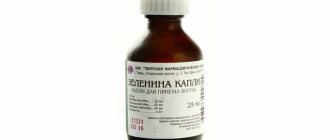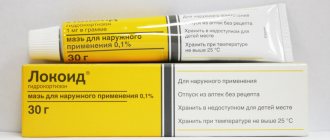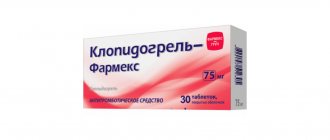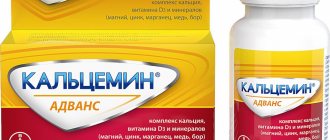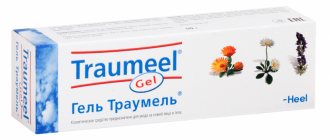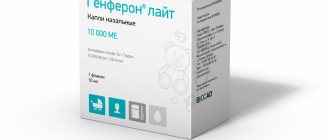All about taurine
In recent years, sports and proper nutrition have become very popular.
In this regard, more and more people are taking various beneficial supplements, including the amino acid taurine. Many have heard that there is such a substance - taurine, that it is useful for metabolism, improving fat burning and increasing energy. However, in fact, most people do not understand what this substance is, what it consists of, where it comes from and what functions it performs. Therefore, today we invite you to get acquainted with taurine! From this article you will learn: what taurine is and why it is needed, what its main sources are, when it is recommended to take dietary supplements with this amino acid, which drugs are better, and also get answers to other popular questions about taurine.
Ischemia-reperfusion injury
The effects of taurine, such as antioxidant effect, modulation of Ca2+ ions, osmoregulation, regulation of protein phosphorylation and high-energy phosphate, influence the outcome of ischemia-reperfusion injury (IRI). To date, the use of taurine is limited to heart transplantation and coronary artery bypass grafting (CABG). Several studies have shown the benefits of using taurine as a component of cardioplegic solutions or saturating hearts with taurine before using them as donors. In addition to oxidative stress and edema, decreased taurine levels in IRI result in decreased Na+ levels, which reduce osmotic stress and Ca2+ overload [16, 32]. In addition, rapid intravenous infusion of taurine before CABG prevents oxidative stress and cell necrosis [33].
What is taurine?
Taurine is an aminosulfonic acid (a substance containing sulfur), synthesized by the body under the influence of enzymes during the breakdown of two amino acids - methionine and cysteine. The substance is highly soluble in water and is resistant to acids, so it is easily absorbed from food.
Taurine was first identified by German scientists during studies of cattle bile in 1827. Subsequently, many studies were carried out on the effect of taurine on the body of animals and humans, confirming the beneficial properties of this amino acid.
Taurine is very useful, but it is practically not stored in the body, and its synthesis is not so great, so it is often classified as an essential amino acid. It must be supplied to the body through food or in the form of dietary supplements.
Safe dose
The European Food Safety Authority (EFSA) considers taurine safe. This assessment refers to a daily dose of no more than 6 g and a period of use of one year. In the US, a dose of 3 g per day is considered safe. This assessment is based on clinical data.
A higher dose is not indicated because we obtain a certain amount of taurine from food. If your diet includes enough fiber and is supplemented with seafood, you will get about 500 mg of taurine in just one meal. It is important to note that taurine can have a calming or sedative effect when taken in large quantities (more than 1 g) throughout the day. For therapeutic purposes, taurine can be prescribed in doses greater than 3000 mg.
Beneficial properties of taurine
Aminosulfonic acid is involved in the regulation of vital processes, such as maintaining a healthy metabolism, breaking down fats in the digestive tract, normalizing blood pressure, ensuring proper functioning of the liver, cardiovascular and nervous systems, maintaining vision and many others.
In more detail, the benefits of taurine for humans include the following properties:
- Taurine is necessary to maintain health at the cellular level - it helps strengthen cell membranes, improves the electrolyte composition of the cytoplasm, relieves inflammation and oxidative damage to DNA, improves the condition of mitochondria, stimulates ATP production, restores cellular respiration, improves metabolic processes, and regulates other reactions occurring in cells .
- Essential for the nervous system - it stimulates the formation of new cells in the hippocampus (the part of the brain responsible for memory and emotions), inhibits synaptic transmission, restores nerve cells, increases the level of gamma-aminobutyric acid in brain tissue, and has an anticonvulsant effect. For these and other properties beneficial to the nervous system, taurine is widely used in the treatment of neuroses, sleep disorders, emotional instability, epilepsy, various brain injuries, etc.)
- Taurine is needed to restore and preserve vision. Helps normalize metabolic processes in eye tissues, restores retinal damage caused by hereditary taperetinal degeneration, corneal dystrophy, cataracts, eye injuries, burns, ultraviolet radiation and many other causes of vision impairment.
- Aminosulfonic acid has strong regenerative properties - it is part of many wound-healing and restorative drugs. Additional consumption of taurine is recommended during the recovery period after surgery, various injuries (including sports), cuts, burns, etc. We will look at what foods contain taurine a little later.
- Taurine helps restore the liver. The amino acid has a hepatoprotective effect, increases blood flow and prevents the destruction of liver cells, improves lipid metabolism, and reduces cholesterol levels. It reduces the destructive effects of antifungal and other drugs and is used in the treatment of hepatitis, cirrhosis and other liver diseases
- Essential for maintaining cardiovascular health. Taurine is very beneficial for blood vessels - it reduces inflammation and increases the elasticity of the walls of blood vessels, strengthens them, reduces congestion, regulates blood flow and blood pressure, reduces the production of cholesterol and triglycerides, prevents the formation of deposits and blockage of blood vessels, and reduces the risk of developing atherosclerosis. Taurine is no less useful for the heart - it improves metabolic processes in the heart muscle, increases the resistance of the myocardium to stress and the contractility of the heart muscle, which stabilizes the heart rate, relieves swelling and shortness of breath, reduces chest pain, reduces the risk of sudden cardiac arrest and the development of other cardiovascular diseases .
- Reduces the concentration of glucose in the blood, increases sensitivity to insulin, directly affecting its receptors, therefore it is actively used in the treatment of diabetes. In addition to normalizing sugar levels, taurine has an effective preventive effect against all complications of diabetes.
- Has a positive effect on muscle condition and improved athletic performance. This amino acid reduces muscle pain, increases energy, performance and endurance, and promotes faster recovery from sprains and sports injuries. In addition, it enhances lipid metabolism, helps reduce adipose tissue and form a beautiful body.
- Improves the condition of skin and hair. Taurine normalizes the nutrition and respiration of all layers of the skin, increases its elasticity, stimulates renewal and restoration, helps fight inflammation, promotes the rapid healing of acne and scratches, reduces wrinkles, and also slows down the appearance of new signs of age-related changes in the skin. For hair, taurine is a growth activator and prevents thinning of the hair shaft. It improves blood supply to the scalp, which means the hair roots receive more nutrition, and the hair itself grows healthier, stronger and more beautiful.
In addition, taurine has many other benefits, including reducing fatigue and strengthening the immune system, so it is important to consume enough taurine. If this is not done, symptoms of taurine deficiency appear.
Links[edit | edit code]
- Mero A, Leikas A, Rinkinen N, Huhta P, Hulmi JJ, Pitkänen H, Knuutinen J. Effect of strength training session on plasma amino acid concentration following oral ingestion of arginine or taurine in men. Amino Acids. 2008 Jun;35(1):99-106. Epub 2008 Jan 31.
- Pavlov V.A. Proceedings of Vseros. scientific-practical conf. with international participation: “Health is the basis of human potential: problems and ways to solve them” - St. Petersburg: Polytechnic Publishing House. Univ., 2008, 374 p.
- Nakajima Y, Osuka K, Seki Y, Gupta RC, Hara M, Takayasu M, Wakabayashi T. Taurine reduces inflammatory responses after spinal cord injury. J Neurotrauma. 2009 Oct 15.
- Galloway SD, Talanian JL, Shoveller AK, Heigenhauser GJ, Spriet LL. Seven days of oral taurine supplementation does not increase muscle taurine content or alter substrate metabolism during prolonged exercise in humans. J Appl Physiol. 2008 Jun 26
- Uozumi Yoriko, Ito Takashi, Hoshino Yuki, Mohri Tomomi, Maeda Makiko, Takahashi Kyoko, Fujio Yasushi and Azuma Junichi. Myogenic differentiation induces taurine transporter in association with taurine-mediated cytoprotection in skeletal muscles Biochem. J. (2006) 394, 699–706/
- Bodine, S.C., Latres, E., Baumhueter, S., Lai, V.K., Nunez, L., Clarke, B.A., Poueymirou, W.T., Panaro, F.J., Na, E., Dharmarajan, K. et al. (2001) Identification of ubiquitin ligases required for skeletal muscle atrophy. Science 294, 1704–1708
- De Luca, A., Pierno, S., Liantonio, A., Cetrone, M., Camerino, C., Fraysse, B., Mirabella, M., Servidei, S., Ruegg, UT and Conte Camerino, D. (2003) Enhanced dystrophic progression in mdx mice by exercise and beneficial effects of taurine and insulin-like growth factor-1. J. Pharmacol. Exp. Ther. 304, 453–463
- McIntosh, L.M., Garrett, K.L., Megeney, L., Rudnicki, M.A. and Anderson, J.E. (1998) Regeneration and myogenic cell proliferation correlate with taurine levels in dystrophin and MyoD-deficient muscles. Anat. Rec. 252, 311–324
- Zhang M, Izumi I, Kagamimori S, Sokejima S, Yamagami T, Liu Z, Qi B. Role of taurine supplementation to prevent exercise-induced oxidative stress in healthy young men. Amino Acids. 2004 Mar;26(2):203-7.
- Cuisinier C, Ward RJ, Francaux M, Sturbois X, de Witte P. Changes in plasma and urinary taurine and amino acids in runners immediately and 24h after a marathon. Amino Acids. 2001;20(1):13-23.
- Nanobashvili J, Neumayer C, Fugl A, Punz A, Blumer R, Prager M, Mittlbock M, Gruber H, Polterauer P, Roth E, Malinski T, Huk I. Ischemia/reperfusion injury of skeletal muscle: plasma taurine as a measure of tissue damage. Surgery. 2003 Jan;133(1):91-100.
- Branth S, Hambraeus L, Piehl-Aulin K, Essén-Gustavsson B, Akerfeldt T, Olsson R, Stridsberg M, Ronquist G. Metabolic stress-like condition can be induced by prolonged strenuous exercise in athletes. Ups J Med Sci. 2009;114(1):12-25.
- Pavlov V.A. Proceedings of Vseros. scientific-practical conf. with international participation: “Health is the basis of human potential: problems and ways to solve them” - St. Petersburg: Polytechnic Publishing House. Univ., 2008, 374 p.
- Nakajima Y, Osuka K, Seki Y, Gupta RC, Hara M, Takayasu M, Wakabayashi T. Taurine reduces inflammatory responses after spinal cord injury. J Neurotrauma. 2009 Oct 15.
- Nakagawa K, Kuriyama K. Effect of taurine on alteration in adrenal functions induced by stress. Jpn J Pharmacol. 1975 Dec;25(6):737-46.
- Mal'chikova LS, Speranskaia NV, Elizarova EP. Effect of taurine on cyclic AMP and GMP levels in the hearts of rats exposed to stress. Biull Eksp Biol Med. 1979 Feb;87(2):134-7.
- Jeevanandam Malayappa, Young David H, Ramias Lois, and Schiller William R. Effect of major trauma on plasma free amino acid concentrations in geriatric patients Am JC/in Nuir l990;5 1:1040-5.
- Safety issues associated with commercially available energy drinks 2009-06-22
- Tsuboyama-Kasaoka N, Shozawa C, Sano K, Kamei Y, Kasaoka S, Hosokawa Y, Ezaki O. Taurine (2-aminoethanesulfonic acid) deficiency creates a vicious circle promoting obesity. Endocrinology 2006 Jul;147(7):3276-84.
- U. Warskulat, U. Flogel, C. Jacoby, H.-G. Hartwig, M. Thewissen, MW Merx, A. Molojavyi, B. Heller-Stilb, J. Schrader and D. Haussinger Taurine transporter knockout depletes muscle taurine levels and results in severe skeletal muscle impairment but leaves cardiac function uncompromised 2004
- Abatan OI, Kim H, Burnett D, Larkin D, Obrosova IG, Stevens MJ| title=Taurine reverses neurological and neurovascular deficits in Zucker diabetic fatty rats
Deficit and surplus
Among the first signs of shortage:
- deterioration in sleep quality, constant fatigue and loss of strength, apathy, depression;
- blurred vision, pain in the eyes when moving or trying to concentrate on an object (for example, on a text), photophobia;
- the appearance of gastrointestinal problems, stomach pain and intestinal discomfort;
- deterioration of the cardiovascular system, the appearance of heart rhythm disturbances, pressure surges, shortness of breath, etc.;
- decreased mental abilities, inability to concentrate, weakened memory;
- deterioration of skin and hair condition;
- metabolic disorders, sudden fluctuations in weight;
- muscle weakness, muscle pain;
- increased incidence of morbidity, poor health for no apparent reason, general weakness.
The following factors can cause taurine deficiency:
- insufficient consumption of foods high in taurine, vegetarianism, diets, poor quality nutrition, abuse of food containing monosodium glutamate, which destroys taurine;
- low levels of amino acids methionine and cysteine in the body - sources for the synthesis of its own taurine;
- fungal infections that increase the excretion of taurine from the body;
- pregnancy and breastfeeding, when most of the taurine that enters a woman’s body passes on to the child;
- increased physical activity, active sports;
- old age (over the years, the synthesis of one’s own taurine, as well as other beneficial substances, decreases).
Since taurine does not accumulate in the body, there is no excess of it. All excess is quickly eliminated by the urinary system. Taurine is almost impossible to obtain in excess; harm to humans from taurine can only be caused by the presence of contraindications.
Summing up
Taurine is necessary for our body to function normally and maintain health. Unfortunately, it is extremely difficult to get the required amount from food. This depends on the quality and availability of food, as well as the body's ability to absorb nutrients. But even if all these conditions are met, athletes, for example, like everyone who simply leads an active lifestyle, may not have enough protein in their diet. In this case, you should think about using special supplements. The amino acid will help normalize the functioning of the nervous system, that is, minimize the effects of stress, protect internal organs from the harmful effects of toxins, increase endurance and even promote weight loss.
Which dietary supplements with taurine should you choose?
When choosing dietary supplements with taurine, pay attention to the composition of the drug and the concentration of the active substance. For dietary supplements to be beneficial, they must be of high quality, as natural and safe as possible. We, together with leading experts, have prepared for you a rating of the highest quality bioactive supplements with taurine. It includes:
- Taurine 1000 mg from Life Extension is a dietary supplement with a high concentration of L-taurine, helps maintain cognitive function and the integrity of neurons, normalizes ATP production, protects the heart and liver from the harmful effects of oxidative stress, improves the condition of muscle tissue, skin and hair.
- Taurine 1000 mg from Now Foods - contains taurine in free form, has a complex relaxing and calming effect, protects nerve cells from destruction, improves endurance, energy, and strengthens the immune system. Recommended for people with taurine deficiency and athletes experiencing increased physical activity.
- Taurine 500 mg from Now Foods is a lighter version of the previous drug. Suitable for lovers of fitness and an active lifestyle, helps fight fatigue and apathy, strengthens the immune system.
Tablets, capsules or powder
Whether you take taurine tablets, capsules or powder depends entirely on your taste. The powder form is more versatile because it can be mixed with food or drinks. With tablets and capsules it is easier to calculate the correct dosage. Taurine supplements are also available in combination with other amino acids or ingredients.
But here, too, it is important to pay attention to quality, otherwise the product may contain unnecessary additives, dyes or preservatives. Taurine supplements are typically free of gluten, sugar, gelatin, nuts and soy. Therefore they are also suitable for allergy sufferers, vegans and vegetarians.
When should you take dietary supplements with taurine?
Taurine is involved in many processes, is involved in lipid metabolism, has cardiotonic and hepatoprotective properties, strengthens the nervous system, preserves vision and has many other beneficial properties, which is why its recommendations for use are extensive. Additional intake of dietary supplements with taurine is necessary:
- for chronic heart failure, angina pectoris and other diseases of the cardiovascular system;
- for diseases of the liver (hepatitis, cirrhosis, etc.), gall bladder and pancreas;
- for dystrophic eye diseases, injuries and burns of the cornea (you need not only drops in the eyes, but also taking taurine orally for a faster recovery);
- with poor nutrition, alcohol abuse;
- vegetarians and pregnant women;
- athletes during periods of intense physical activity, people leading an active lifestyle;
- patients undergoing bed rest;
- when taking medications that reduce the production and absorption of taurine from food;
- as part of complex diabetes therapy.
Introduction
Taurine is a β-amino acid found in very high concentrations in most cells of the body, especially in excitable tissues. Although taurine has many functions in mammals, its cytoprotective properties have attracted particular attention from researchers because they significantly alter the health and nutritional status of a subject. The ability of taurine to regulate fundamental processes occurring in the cell, changing the balance of life and death in it, has aroused interest in the study of its physiological functions. The results of these scientific works have stimulated research into the therapeutic effects of taurine and its nutritional value, from which encouraging conclusions have been drawn [1, 2]. Of particular note is a World Health Association study involving 50 populations in 25 countries, which found that increased taurine intake was associated with a reduced risk of hypertension and hypercholesterolemia [3, 4]. Taurine supplementation also leads to a decrease in body mass index and levels of inflammatory markers in obese women [5]. Thus, the cytoprotective effect of taurine improves human health.
Contraindications
Despite the fact that taurine is vital and has many beneficial properties, it has contraindications. It is not recommended to take dietary supplements with taurine:
- people with kidney and gallstones;
- with peptic ulcer of the stomach and duodenum, with gastritis in the acute stage;
- people with persistent low blood pressure;
- for pathologies of the heart, blood vessels and liver.
Under no circumstances should taurine be taken with alcohol (it enhances the negative effects of ethanol). It is also not recommended to combine taurine and caffeine - this combination invigorates, but has a detrimental effect on the state of the cardiovascular and nervous system.
Effect on the nervous system
Taurine is one of the most concentrated essential amino acids in the nervous system and is similar in chemical structure to GABA. It is a neurotransmitter that reduces nerve impulses and has a relaxing effect on the human body, affecting the excitability of neurons.
In addition, taurine binds to the glycerol receptor, which has a calming effect. On the other hand, taurine has a regulating effect on the calcium balance in nerve cells.
Side effects
Since the main source of taurine is energy drinks, many believe that strong stimulation, slight tremors and irritability are associated with it. And they are deeply mistaken. After drinking a couple of cans of Red Bull or Monster, you are “invigorated” not by taurine, but by caffeine, sugar and other components of the energy drink.
However, caution must be exercised when:
- Kidney disease . Like other amino acids, large doses of taurine can cause some problems in people with kidney disease.
- Pregnancy and breastfeeding . There is not enough information on its consumption during pregnancy or breastfeeding, so avoid its use.
- Bipolar disorder . Some sources claim that a large dose of taurine may worsen bipolar disorder. Therefore, energy drinks are not recommended for people with bipolar disorder.
- Combination with lithium . Taurine can change the amount of lithium in the body. Before using it in combination with lithium, consult your doctor to avoid negative side effects.
